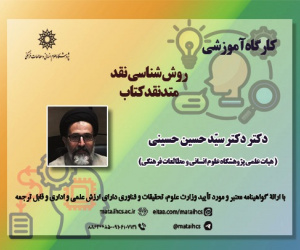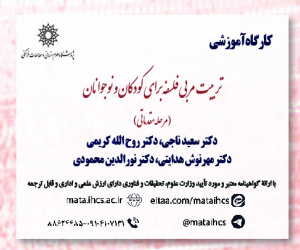نقشه شناختی و سناریونویسی هم خلقی ارزش در استارتاپ های حوزه فین تک مبتنی بر ارتقای عملکرد بازاریابی
آرشیو
چکیده
استارتاپ های حوزه فین تک به عنوان نوآوران و پیشگامان در حوزه فناوری مالی، نیازمند رویکردهای بازاریابی مؤثر برای رشد و توسعه موفقیت آمیز خود هستند. هدف این مطالعه، طراحی الگوی شناختی هم خلقی ارزش در استارتاپ های حوزه فین تک و تدوین سناریوهای آتی مبتنی بر ارتقای عملکرد بازاریابی است. پژوهش از نظر هدف کاربردی، از نظر ماهیت اکتشافی- تحلیلی، از نظر روش گردآوری داده ها، ترکیبی (کیفی- کمّی) است. در فاز کیفی با مرور ادبیات، مؤلفه ها شناسایی شد. در فاز کمّی، با استفاده از پرسشنامه مقایسه زوجی، داده ها از 9 نفر خبرگان استارتاپ های حوزه فین تک و اساتید دانشگاهی استخراج و با استفاده از رویکرد نگاشت علّی، مدل جامع با نقشه ذهنی ادغامی خبرگان طراحی شد. جهت تحلیل داده ها از نرم افزارهای UCINET و COGNIZER استفاده شد. یافته ها نشان داد در استارتاپ های حوزه فین تک 50 شاخص استخراج شد. مؤلفه ها در 13 مقوله کلی که عبارت اند از: توسعه اکوسیستم و همکاری با مشتریان، شخصی سازی، استراتژی های نوآورانه، حلقه بازخورد، پلتفرم های مشارکتی، امنیت، اندازه گیری نتایج، کانال های ارتباطی، تجربه مشتری، استفاده از فناوری، پاداش ها، ارزش پیشنهادی و توسعه روابط بلندمدت از طریق معیارهای عملکرد. برای مؤلفه های استراتژی های نوآورانه، تجربه مشتری و حلقه بازخورد با مشتری، سناریوهای برگشت به عقب و برای مؤلفه های ارزش پیشنهادی، توسعه روابط بلندمدت از طریق معیار عملکرد و تجربه مشتری یکپارچه، سناریوهای روبه جلو تدوین شد. نتایج نشان داد که الگوی شناختی هم خلقی ارزش و تدوین سناریوهای آتی مبتنی بر ارتقای عملکرد بازاریابی می تواند به بهبود عملکرد بازاریابی در استارتاپ های حوزه فین تک کمک کند و از این طریق به رشد و توسعه بیشتری دست یابند.Cognitive Mapping and Scenario Writing for Value Co-creation in Fintech Startups based on Improving Marketing Performance
Fintech startups, as innovators and pioneers in the field of financial technology, require effective marketing approaches for their successful growth and development. The aim of this study is to design a cognitive model of value co-creation in fintech startups and to develop future scenarios based on improving marketing performance. The research is mixed (qualitative-quantitative) in terms of its applied purpose, exploratory-analytical nature, and data collection method. In the qualitative phase, the components were identified by reviewing the literature. In the quantitative phase, using a paired comparison questionnaire, data was extracted from 9 fintech startup experts and university professors, and using the causal mapping approach, a comprehensive model with an integrated mind map of the experts was designed. UCINET and COGNIZER software were used to analyze the data. The findings showed that 50 indicators were extracted in fintech startups. The components are divided into 13 general categories: ecosystem development and customer collaboration, personalization, innovative strategies, feedback loops, collaborative platforms, security, measurement of results, communication channels, customer experience, use of technology, rewards, value proposition, and developing long-term relationships through performance metrics. For the components of innovative strategies, customer experience, and customer feedback loops, backward scenarios were developed, and for the components of value proposition, developing long-term relationships through performance metrics and integrated customer experience, forward scenarios were developed. The results showed that the cognitive model of value co-creation and the development of future scenarios based on improving marketing performance can help improve marketing performance in fintech startups and thereby achieve greater growth and development.











